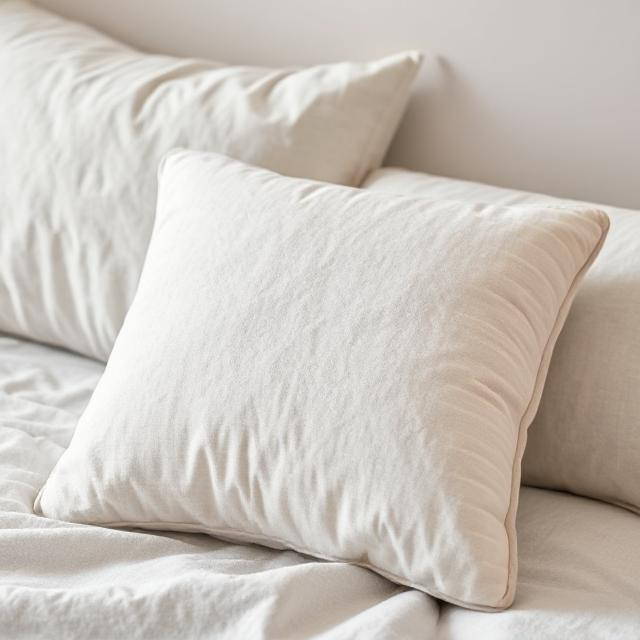A good night’s sleep is essential for overall health, yet many older and plus-size individuals face unique challenges when it comes to finding the right pillow support. While pillows might seem like a small part of the sleep equation, the correct choice can have a significant impact on reducing pain, improving posture, and ensuring a restful night. In this post, we’ll explore the science behind pillows, what makes them work, and how to choose the best option for your body and sleeping style.
Understanding the Role of a Pillow
Pillows aren’t just for comfort—they play a critical role in aligning the head, neck, and spine. For older adults, proper support is important to alleviate stiffness and reduce the risk of waking up with aches. For plus-size sleepers, a robust pillow can help compensate for added body weight and ensure the neck isn’t left unsupported.
Key functions of a good pillow include:
-
Spinal Alignment: A pillow should maintain the natural curve of your neck while supporting your head.
-
Pressure Relief: The right pillow distributes weight evenly, reducing pressure points that can lead to discomfort or pain.
-
Temperature Regulation: Some pillows come with cooling features or breathable materials, which is especially beneficial if you tend to overheat at night.
Unique Challenges for Plus-Size and Older Sleepers
Plus-Size Sleepers
-
Weight Distribution: Extra body weight can lead to uneven pressure, so a pillow that offers consistent support is critical.
-
Side Sleepers: Many plus-size sleepers favor side sleeping, which requires a thicker pillow to fill the space between the ear and the shoulder.
-
Durability: Pillows must maintain their structure over time despite the extra pressure from additional weight.
Older Sleepers
-
Neck and Joint Pain: Aging can bring about joint stiffness and chronic pain, making ergonomic support a priority.
-
Sleep Posture Changes: As we age, our sleep posture can shift. A pillow that adapts to different positions—whether you sleep on your back or side—can make a significant difference.
-
Ease of Use: Older individuals might prefer pillows that are easy to adjust or reposition during the night.
What to Look for in the Right Pillow
Finding the ideal pillow is all about balancing firmness, thickness, and material quality. Here are some features to consider:
1. Adjustability
-
Customizable Fill: Pillows that allow you to add or remove filling (like shredded memory foam or latex) let you adjust thickness and firmness to suit your needs.
-
Contoured Designs: These can provide extra support for the neck’s natural curve, which is beneficial for both plus-size and older sleepers.
2. Material Matters
-
Memory Foam: Offers excellent contouring and pressure relief but can retain heat. Look for versions with cooling gel or ventilation.
-
Latex: Naturally resilient and supportive, latex pillows often provide a good balance of comfort and durability.
-
Feather or Down: While these provide a plush feel, they might not offer enough support for those needing extra stability. However, they can be a good option for back sleepers if combined with a supportive layer.
3. Size and Shape
-
Extra-Large Pillows: For plus-size individuals, a larger pillow can ensure proper head and neck support without compressing too much.
-
Ergonomic Designs: Pillows designed to promote alignment can be especially helpful if you suffer from neck pain or stiffness.
4. Ease of Maintenance
-
Washable Covers: A removable and washable cover not only helps with hygiene but also ensures that your pillow stays fresh.
-
Durability: Look for pillows that maintain their shape and support over time. Some materials, like latex or high-quality memory foam, tend to last longer than traditional options.
Tips for Choosing Your Pillow
-
Know Your Sleep Position:
-
Side Sleepers: Look for a thicker, firmer pillow to fill the gap between your shoulder and neck.
-
Back Sleepers: A medium-thickness pillow that supports the natural curve of your neck is ideal.
-
Stomach Sleepers: Although this isn’t typically recommended due to neck strain, if you must, choose a very thin pillow.
-
-
Test Before You Buy:
-
If possible, visit a store where you can try out different pillows. Notice how your neck and shoulders feel after a few minutes of simulated sleep.
-
Many online retailers now offer trial periods, so you can test a pillow at home and return it if it’s not a good fit.
-
-
Consult a Specialist:
-
For persistent pain or specific conditions, consider speaking with a physical therapist or a sleep specialist. They can offer personalized recommendations based on your body type and health needs.
-
For plus-size and older individuals, the right pillow isn’t just a luxury—it’s a vital tool for maintaining health, comfort, and quality sleep. By understanding the science behind pillow support and considering your unique needs, you can make an informed choice that enhances your nightly rest and overall well-being.




